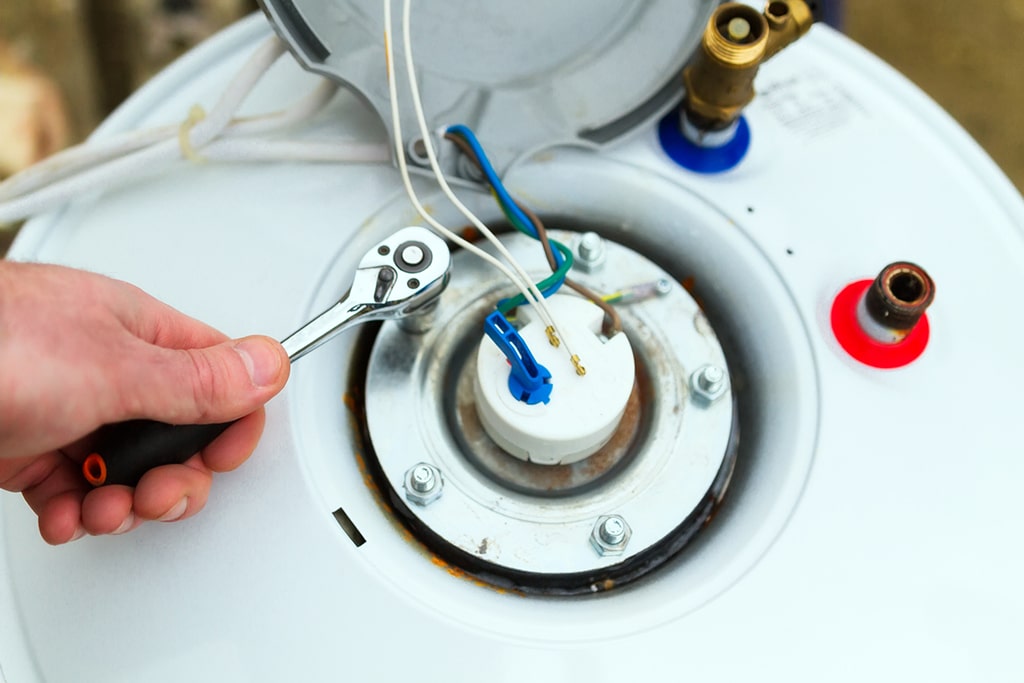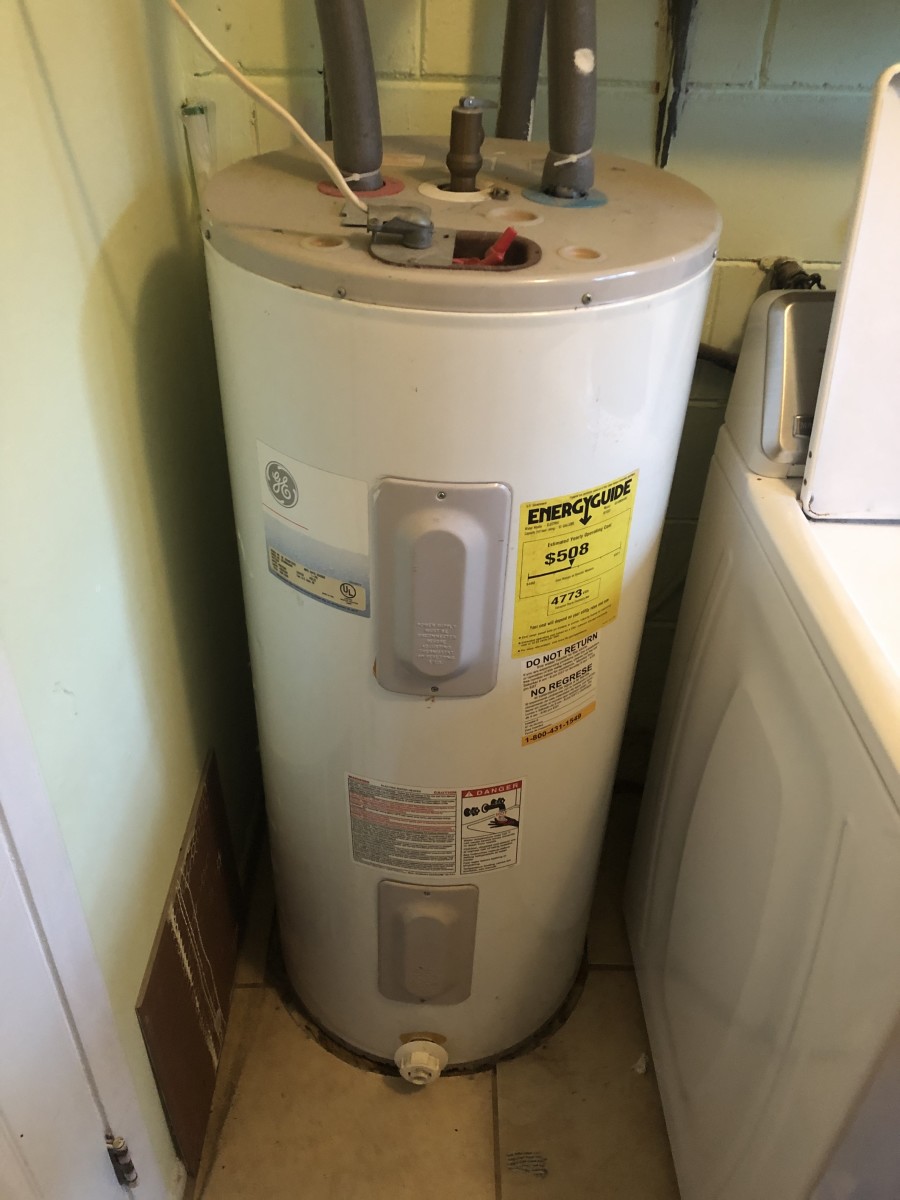Crucial Protocols for Homeowners Facing Problems with Faulty Heating Units
Crucial Protocols for Homeowners Facing Problems with Faulty Heating Units
Blog Article
Everyone will have their own individual concepts with regards to Maintaining & Draining a Water Heater.

Whether it lies in the basement or a different area, broken hot water heater can create tension. A typical unit holds 80 gallons, so an overnight leakage will certainly bring about a flood. This results in major residential property damages with drenched walls and floors. Having no hot water supply is likewise problematic. If you are taking care of these problems, remember of the following:
Shut Down Power Source
Before calling the plumber, shut off a gas water heater by transforming the temperature dial. This is typically located on top of the thermostat. Switch off the circuit breaker if you have a version that runs on electrical power. This will certainly stop electrocution, particularly if there is a leak as water is a conductor. Normally, the burner turns off when the water hits a details temperature level. However with a damaged storage tank, it might malfunction. Sufficing off guarantees you remain risk-free.
Cut Off the Cold Water Supply
Cut off the containers faucet water supply from the source. This goes from your major water line into the storage tank. When your container is in good condition, the cold water stops filling up when the container is full. But because it is dripping, the water will continue to flow. Close the shutoff discovered on top of the heating system. Rotate this clockwise to close it off. If you can not find it or reach it, you have to shut off that major supply of water line outside your residential property.
Call the Plumber
After doing the first two safety actions, you have to call your plumber ahead immediately to fix a ruptured hot water heater. Keep in mind that your system will not simply conk out substantially overnight. There are usually signs that your aging hot water heater has sediment build-up in the interior. Take note of the following:
Don't wait on significant flooding to call the plumber. By then, you will have to spend more to restore your property. Rather, as quickly as you detect these indicators, have actually an expert concerned inspect your water heater give thanks to. Commonly, hot water heater have a life expectancy of regarding 8 to 12 years. With normal assessment as well as upkeep, you can extend its life.
Clean Up Residential or commercial property
After calling the plumber, document damage by taking notes and photos so you can claim your house owner's insurance policy. Remove any kind of standing water to stop mold and mildew and also mold growth. If you have a submersible water pump, utilize that to drain the water.
Bear in mind, if you notice any kind of issues with your hot water heater, call the pros right now. You can not take this trouble lightly due to the fact that a damaged thermostat can increase water temperature to a dangerously high degree, leading to accidental burns. A broken heater stress relief valve can likewise trigger a surge. For finest results, obtain an annual check so your device gets examined, cleaned up, drained pipes, as well as refilled, assuring optimal efficiency.
Whether it is situated in the cellar or a different area, busted water heating systems can create stress. Before calling the plumber, closed off a gas water heating system by transforming the temperature level dial. After doing the initial 2 security steps, you should call your plumber to come right away to repair a ruptured water heater. If you have a completely submersible water pump, make use of that to drain the water. Remember, if you notice any kind of problems with your water heater, call the pros right away.
Is My Water Heater Broken?
The Water Heater is Old
No appliance will last forever. This includes a home’s water heater. During its lifespan, residents are going to face a situation where a new water heater installation will be necessary. The biggest problem with this is that most people are not sure when their water heater expires. Not knowing this can lead to serious risks if the unit begins to act up due to old age.
Most makes and models of water heaters will last between eight and 10 years. While 10 years is the age when water heater replacement is highly recommended, the need to replace the unit may occur before this time or after. If the unit doesn’t show any symptoms of a problem, it is a good idea to replace it at the 10-year mark (from the manufacture date).
Some of the symptoms that indicate a new unit is needed include rusting, leaks, noises, and a failure to heat up the water. Also, note that not all units have a 10-year life expectancy. The main exception to this rule is that a gas unit will last for six to eight years.
Rusty Heater Inlet Valve or Water
While steel is the strongest material on earth, it does have a weakness – rust. If corrosion occurs on a steel surface, it will begin to spread and eat through the steel in certain areas. On water tanks and pipes that are made of steel, rust is a warning sign of an impending leak.
The issue for many is trying to figure out if the rust is coming from the water heater or the pipes that lead to the faucet. If rust is seen, it is a clear indication that water heater service from the professionals is needed.
If rusty water appears out of the faucets in the bathtub or sink, it likely means a rusty water heater. If there is rust near the water inlet or the pressure relief valve, rust has likely developed inside the tank. If tap water appears rusty, it may be an issue with the pipes.
Strange Sounds from the Water Heater
Are there strange sounds coming from the tank? As a water heater gets older, rumbling noises may develop and get louder and louder as the water in the tank heats up. In homes where large amounts of hot water are used, the issue is likely going to be even more obvious when more serious issues arise. If there is a strange or loud noise coming from the unit, it is probably because of sediment buildup. A good way to remedy this problem is by flushing the heater. If this does not work, then a new unit may need to be installed.
Leaks
As a water heater gets closer to the end of its useful life, there is a higher chance there will be water around the tank. If there is water, this usually means leaks are occurring. Based on where the unit is located in the home, a leak may result in serious property damage.
Leaks are usually caused by expansions in the metal tank. The expansions occur as time passes and as the inside body of the tank is exposed to multiple heating cycles per day. When a fracture forms, the gap will be slight enough to hold the water in; however, in more serious situations, this will not be the case. If the tank is idle, the water will not leak but when the metal expands during each heating system, small amounts of water will get through the gap.

We had been made aware of that article about How to Avoid a Broken Hot Water Heater from an acquaintance on our other web address. For those who enjoyed reading our post please do not forget to pass it around. I appreciate reading our article about Water Heater Repair.
Get it fixed! Report this page